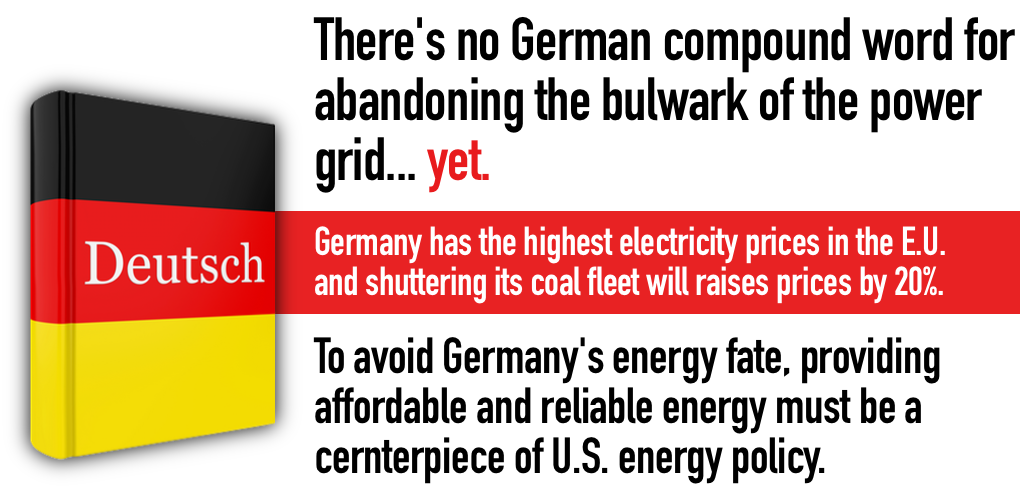
A Playbook on What Not to Do
When the Germans embarked on their grand pivot to renewable sources of power, they knew the effort was going to be costly but did they expect the price tag to be this steep? Power prices in Germany are already the most expensive in Europe where electricity is far from a bargain. And now the German government is grappling with how to transition away from the nation’s coal fleet, the foundation of Germany’s famed industrial base.
The Energiewende has so far primarily focused on ramping up renewable energy to replace nuclear power, always unpopular in Germany but dealt a public opinion death blow following the Fukushima accident in Japan. While some coal capacity has been retired as part of this transition, Germany’s remaining coal plants – all 120 or so of them – continue to meet roughly 40 percent of the nation’s electricity demand. A considerable number of these plants are some of the cleanest, most efficient and advanced coal-fired generating stations in the world. Shutting them down and abandoning this bulwark of the grid may be one crazy German compound word too far.
By one analysis, closing the coal fleet by 2040 – as the government hopes to do – would push up German power prices by another 20 percent. And that’s only part of the price tag. Billions upon billions of euros would also be needed to help coal regions and the coal workforce make the transition, and it would almost certainly mean even greater reliance on Vladimir Putin’s natural gas – a high price indeed.
Chancellor Angela Merkel’s “coal commission,” tasked with charting a course for this pivot, has yet to roll out a plan on how it can be accomplished. Naming the plan is sure to be easier than crafting it. Perhaps try the German word for self-inflicted economic disaster? Surely one exists.
Back in 2013, with the Energiewende well underway, the German news magazine Der Spiegel warned that electricity was becoming a luxury good. But despite the warning and growing alarm at the cost of the energy transition, the tab continues to rise.
Whether or not Germany can retire its coal fleet remains to be seen. The costs and technical challenges are immense and perhaps – for the good of German ratepayers – insurmountable. But even if Germany doesn’t take another step down its proposed energy course, the lessons already to be learned from its missteps are plentiful.
Energy costs shouldn’t be treated lightly. They determine the competitiveness of whole industries, of entire economies, and they weigh heavily on every consumer but disproportionately on those barely getting by. As the U.S. Energy Information Administration just reported, one in three American households faces a challenge in meeting its energy needs. According to 2015 data, the most recent available, about one in five households – a full 25 million of them – reported reducing or forgoing necessities such as food and medicine to pay an energy bill. Another 11 percent of households reported keeping their home at unhealthy or unsafe temperatures.
Providing affordable, reliable energy must remain the centerpiece of U.S. energy policy. Too many households are already struggling to pay their energy bills. Turning electricity into a luxury is something we quite literally can’t afford to do.
- On September 26, 2018
